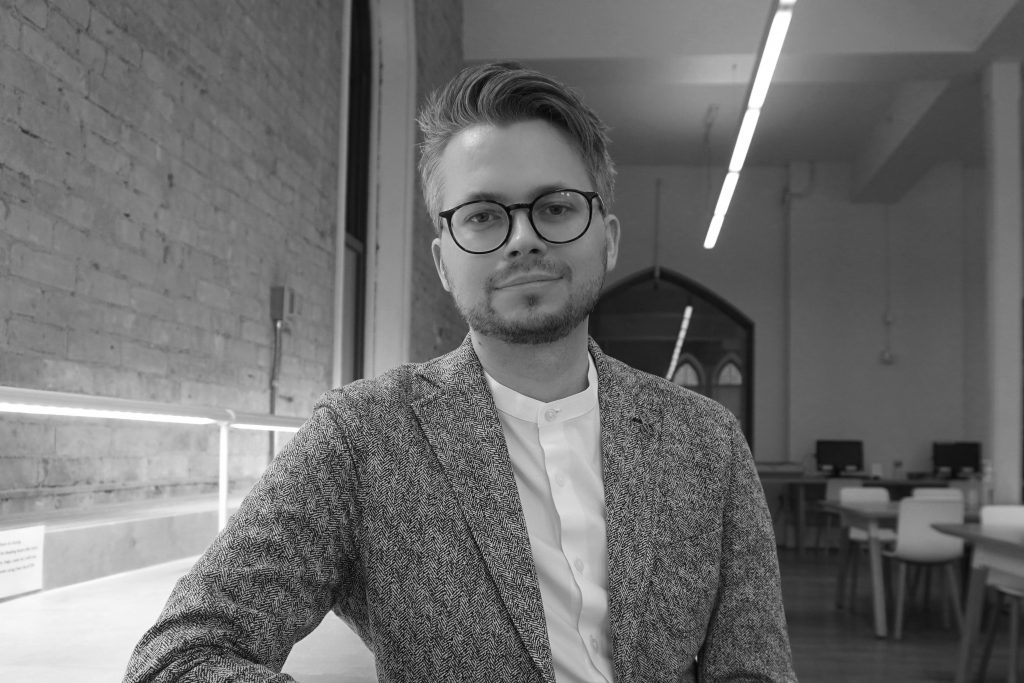The Vertical Geopolitcs Lab (VGL) is comprised of a practice-based research and teaching team with experience at the disciplinary intersections of the applied and social sciences in architecture, geography, politology, and media, employing techniques from visual storytelling, graphic design, scenic design, exhibition design, interior design, and architectural design with a particular focus on visual, material, and spatial analysis and immersion.
Lukas Pauer is a licensed architect, urbanist, historian, educator, and the Founding Director of the Vertical Geopolitics Lab. At the University of Toronto (UofT), Lukas is an Assistant Professor of Architecture, Inaugural 2022-2024 Emerging Architect Fellow. There, his contribution at disciplinary intersections is reflected in his engagements as a Faculty Affiliate in Urban Studies at the UofT A&S SofC as well as a Faculty Affiliate in Global Affairs and Public Policy at the UofT Munk CERES.

Bethany Scott is an anthropologist and Project Coordinator at the lab. Bethany has a background in both anthrozoology and international development.
William Jamieson is a geographer and Research Fellow (Critical Creative Research Writing) at the lab. Integrating political geography and literary theory through a lens of critical creative writing, his involvement with the lab examines how space can be read and written by power.
Darien Mirzoev is an architect and Senior Research Assistant (Open-Source Intelligence, Architectural Drawing) at the lab.
Farwa Mumtaz is an architect and Research Assistant (Model-Making) at the lab.
Michelle Li is an architect and Research Assistant (Cartographic Drawing) at the lab.